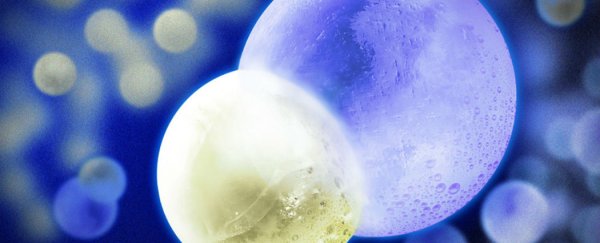You might think you've been cold in your life - shivering on a windy shore or at the top of an exposed mountain peak - but in physics terms, you haven't really been cold at all. Researchers in the US have been able to create molecules that redefine what it means to be cold. In fact, for a short time, these atoms were the coldest matter in the known Universe.
So just how cold are we talking? Scientists use Kelvin as their scale of temperature, and zero Kelvin equates to absolute zero - in other words, the coldest anything can possibly be. It's the equivalent of -273.15 degrees Celsius (-459.67 degrees Fahrenheit), or about a million times colder than the emptiness of space.
To achieve this, the team from the Massachusetts Institute of Technology (MIT) created a cluster of molecules that reached a low of 500 nanokelvins, which is 500-billionths of a degree above absolute zero. That's the kind of mind-bogglingly low temperature that a jacket around the shoulders certainly wouldn't be able to help with. The team used a combination of evaporation and laser technology to cool a sodium potassium gas down to near-zero and reduce motion (which produces heat) as much as possible.
Although sodium and potassium don't usually form compounds, the MIT researchers led by physicist Martin Zwierlein used a magnetic field to get the atoms to stick to one another. By setting one laser to match the molecule's initial state and another at the ultra-low temperature 'goal' of the experiment, energy could be drained from the molecules as it flowed from the former laser to the latter.
While the finished result only existed for just 2.5 seconds, the potential is huge. The scientists are hoping that by cooling these molecules further and for longer, they can observe some of the quantum mechanical effects that have been written out as theories but never actually tested. At these low temperatures and static speeds, the molecules behave in a more orderly fashion - and that might lead to some very interesting scientific discoveries.
"We are very close to the temperature at which quantum mechanics plays a big role in the motion of molecules," says Zwierlein of the experiments. "So these molecules would no longer run around like billiard balls, but move as quantum mechanical matter waves. And with ultracold molecules, you can get a huge variety of different states of matter, like superfluid crystals, which are crystalline, yet feel no friction, which is totally bizarre. This has not been observed so far, but predicted. We might not be far from seeing these effects, so we're all excited."
The results of the new study have been published in the journal Physical Review Letters, but these molecules can get colder still in future experiments. As Zwierlein puts it: "Now we're at 500 nanokelvins, which is already fantastic, we love it. A factor of 10 colder or so, and the music starts playing."
